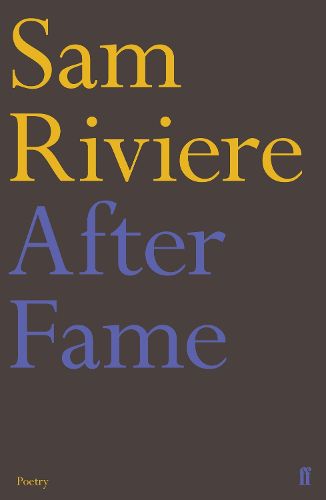Readings Newsletter
Become a Readings Member to make your shopping experience even easier.
Sign in or sign up for free!
You’re not far away from qualifying for FREE standard shipping within Australia
You’ve qualified for FREE standard shipping within Australia
The cart is loading…






After Fame is a discursive rendering of the Roman epigrammatist Martial’s Book I. Its 118 poems, on themes such as work, friendship and public life, are modelled after the source material through a variety of ‘treatments’ - most notably machine translation (for which Latin still presents near-insurmountable difficulties), employing the results as scaffolding for poems that quickly improvise their way clear of their originals. As it progresses, the book is increasingly interrupted by reflections on authorship, technology, cultural complicity and the privileged, mediating role of the poet: all fixations of Martial’s work that still resonate today. Pitched between translation and new writing, After Fame challenges the integrity of both categories, dramatising the obscurity of its source, refraining from easy equivalences, while insisting on its contemporary relevance.
$9.00 standard shipping within Australia
FREE standard shipping within Australia for orders over $100.00
Express & International shipping calculated at checkout
After Fame is a discursive rendering of the Roman epigrammatist Martial’s Book I. Its 118 poems, on themes such as work, friendship and public life, are modelled after the source material through a variety of ‘treatments’ - most notably machine translation (for which Latin still presents near-insurmountable difficulties), employing the results as scaffolding for poems that quickly improvise their way clear of their originals. As it progresses, the book is increasingly interrupted by reflections on authorship, technology, cultural complicity and the privileged, mediating role of the poet: all fixations of Martial’s work that still resonate today. Pitched between translation and new writing, After Fame challenges the integrity of both categories, dramatising the obscurity of its source, refraining from easy equivalences, while insisting on its contemporary relevance.